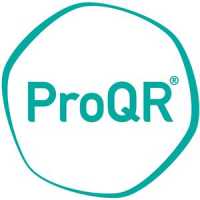22 May RNA-Editing Tool Corrects Collagen Deficit in Severe Blistering Disorder
MedicalResearch.com Interview with:
 Daniel de Boer
Daniel de Boer
Founding Chief Executive Officer
ProQR
MedicalResearch.com: What is the background for this study? Would you briefly explain what is meant by dystrophic epidermolysis bullosa?
Response: Dystrophic epidermolysis bullosa (DEB) is caused by a mutation in the COL7A1 gene which is responsible for the formation of a protein called type VII collagen (C7). This protein helps bind the inner and outer layers of the skin together. Mutations in one part of COL7A1 gene, exon 73, are the most common cause of DEB resulting in a non-functional C7 protein. ProQR’s QR-313 is designed to skip exon 73 of the COL7A1 gene, leading to a shortened C7 protein called C7Δ73. The current studies are intended to determine whether C7Δ73 functions the same as normal C7 protein. This mechanism can hopefully restore normal skin function for DEB patients.
DEB is a rare genetic skin disease characterized by easy blistering of the skin, poorly healing wounds and skin infections. DEB is present at birth and in severe cases leads to skin cancer, which can significantly reduce a patient’s lifespan. There are currently no treatments for DEB that target the underlying cause of the disease. The current standard of care consists of expensive time-consuming wound care, antibiotics to prevent infection and pain medications. As a result, this disease presents a huge burden to the patients themselves, as well as people who help with daily care.
MedicalResearch.com: What are the main findings?
Response: There are several important findings from these studies. First, we have shown that the shortened C7Δ73 protein functions similarly to the normal C7 protein.
Through biochemical assays we have shown that C7Δ73 retains the ability to interact with other skin proteins necessary to hold the outer layers of skin together. More importantly, we treated skin cells taken from patients with DEB with QR-313 and found that functional C7Δ73 can be expressed. This represents an important first step in proving that QR-313 has the potential to help restore normal skin function in DEB patients.
MedicalResearch.com: What should clinicians and patients take away from your report?
Response: Due to the lack of available treatments for DEB that target the underlying cause of the disease, we feel that there is a significant unmet need in this patient population. QR-313 has the potential to fill this need by restoring function to the defective protein that causes fragile skin. The data from this study support our predictions and are encouraging as we progress to clinical testing of QR-313.
MedicalResearch.com: What recommendations do you have for future research as a result of this study?
Response: The findings from this study are foundational for our planned Phase 1b/2 clinical trial of QR-313 in patients with DEB. As we transition from preclinical testing of QR-313 to a clinical setting, we are looking to assess the potential of C7Δ73 to help to restore normal skin function. Our goal is to develop a transformative treatment for DEB patients and to provide them the first-ever DEB therapy that targets the underlying cause of the disease.
MedicalResearch.com: Is there anything else you would like to add?
Response: At ProQR, we focus on RNA molecules specifically designed to make a particular change in the RNA causing a genetic disease. With targeting the RNA, a patient’s genetic makeup, or DNA, remains unchanged. QR-313 works by removing the damaged portion of the RNA, which we expect will increase skin strength and wound healing and prevent blistering. The initiation of the first clinical trial of QR-313 is currently underway.
MedicalResearch.com: Thank you for your contribution to the MedicalResearch.com community.
Citation:
| Abstract title: | QR-313, an antisense oligonucleotide, restores expression of functional type VII collagen in DEB patient cells | |
| Presenter: | Ilse Haisma, PH.D., senior scientist dermatology of ProQR | |
| Poster Presentation: | Saturday, May 19, 11:45 am – 1:45 pm ET | |
| Poster #: | 984 – 1474 EVEN/ 493 – 981 ODD |
Note: Content is Not intended as medical advice. Please consult your health care provider regarding your specific medical condition and questions.
[wysija_form id=”1″]
Last Updated on May 22, 2018 by Marie Benz MD FAAD
